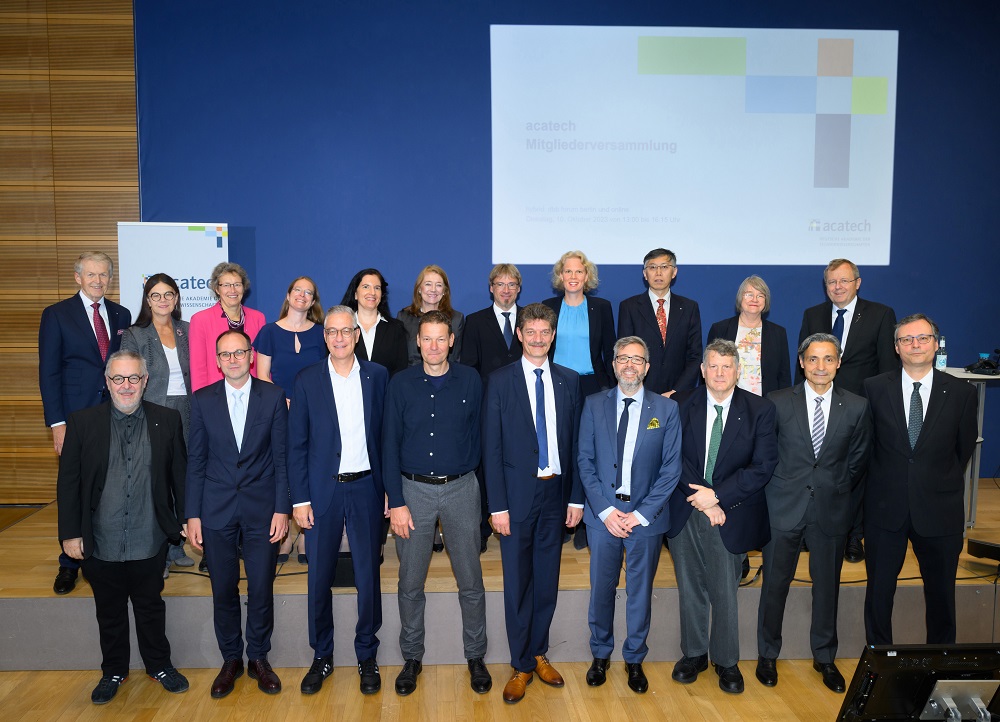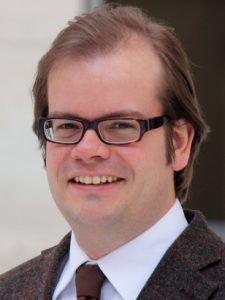Elections to the acatech General Assembly boosts scientific excellence

Berlin, 12 October 2023
On 10 October in Berlin, acatech shored up the science and engineering foundations underpinning the Academy. The General Assembly appointed new scientific members to the Academy and ratified the Management Board. In addition, members who were elected over the course of the past year introduced themselves and their research focus. In her keynote speech, Katja Schenke-Layland, University of Tübingen and acatech Executive Board member since 2022, shed light on the contribution made by science and engineering to predictive and personalised medicine.
Immediately prior to the acatech gala on 10 October with Federal President Frank-Walter Steinmeier (in German) acatech members – scientists in technology-related disciplines – met in Berlin. On the agenda were recent developments, topics and projects of the Academy, and the appointment of new members. In addition, the members who were elected in 2022 introduced themselves.
Host for the afternoon was acatech President Jan Wörner. He, together with Thomas Weber, acatech President concerned with economic matters, presented current Academy projects and activities, which deal with key challenges facing innovation policy; for example, energy security of supply, the development of a hydrogen economy (in German) and a comprehensive circular economy. After the Audit Committee gave its report on the 2022 annual accounts, the General Assembly ratified the Management Board. Managing Director Manfred Rauhmeier reported on the 2022 cost accounting and gave an outlook on the non-profit’s financial planning.
How science and engineering contribute to new health applications
In her keynote speech, Katja Schenke-Layland shed light on the contributions made by science and engineering to medicine. The Director of the NMI Natural and Medical Sciences Institute at the University of Tübingen highlighted five areas where doors are being opened to a new kind of medicine: (stem) cell technology and genetic engineering, materials science and engineering including nanomaterials, in-vitro testing models, the use of medical data as well as the development of novel implants (Advanced Therapy Medicinal Products). According to Ms Schenke-Layland, they are paving the way for transitioning to personalised, individualised and stratified medicine, in which prevention and predictive diagnostics will play a much greater role.
New members boost interdisciplinary expertise
The General Assembly voted on the appointment of new members. Nominations are based on the scientific excellence of the candidates in their areas of research. acatech will announce the newly elected members as soon as they have accepted.
Being elected as a new acatech member is a distinction and an honorary role – members are involved in the topic networks, working groups and projects of the Academy. At this year’s General Assembly, the members elected in 2022 presented themselves and their research focus. The percentage of newly appointed female scientists was around 45 per cent in 2022. This figure surpasses the target set in acatech’s equality strategy to nominate at least 30 per cent female scientists for election as new acatech members. All 22 newly elected members in 2022 can be found here.
Further information
Overview of acatech members


